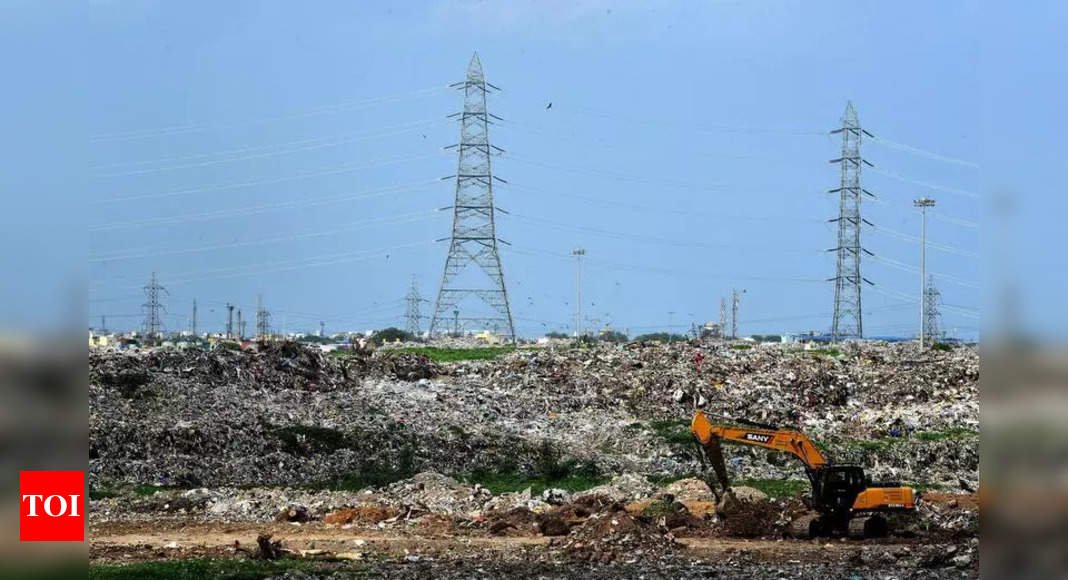10% Progress in Biomining at Kodungaiyur Dump Yard
Greater Chennai Corporation Steps Up Operations
The Greater Chennai Corporation (GCC) has achieved a 10% milestone in biomining the 352-acre Kodungaiyur dump yard. By the end of March, GCC aims to enhance its capacity. Currently, they process 2,100 tonnes of waste daily, but with additional biomining machines, they plan to manage 10,000 tonnes per day.
Waste Management and Reclamation
- Out of the total 66 lakh tonnes, 6 lakh tonnes of waste have been biomined
- The reclaimed waste consists of 30% plastic, 25% cloth, 30% biodegradable waste, and the remaining glass and wood
- 200 tonnes of soil have been reclaimed and utilized to fill up planters on pavements and in parks
Biomining Procedure
The dump yard has been segmented into six zones, with different contractors assigned to each zone for biomining. The process entails opening the 50-year-old landfill, allowing it to dry under the sun, and then applying bioenzymes to break down the waste. The waste is then pushed into a segregation conveyor, which separates plastic, bottles, soil, and cloth waste into distinct compartments.
Waste-to-Energy Incineration Plant
The Tamil Nadu government has greenlit a waste-to-energy incineration plant, allocating 3,450 crore in its budget. The plant will be constructed in the reclaimed area of Kodungaiyur dump yard and generate 21 MW electricity by burning 2,100 tonnes of waste daily. However, residents continue to protest against the plant, advocating for more bio-CNG plants instead of an incinerator.
Bio-CNG Plants
GCC has proposed two bio-CNG plants in Madhavaram and two at Koyambedu. Residents maintain that bio-CNG plants are a more eco-friendly alternative compared to incinerators, as they do not release toxic emissions.



